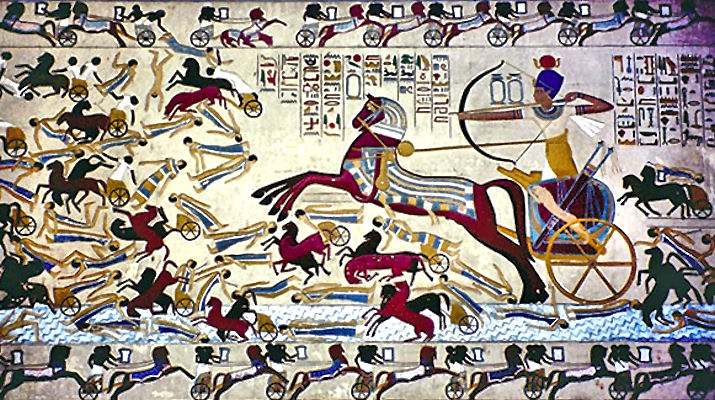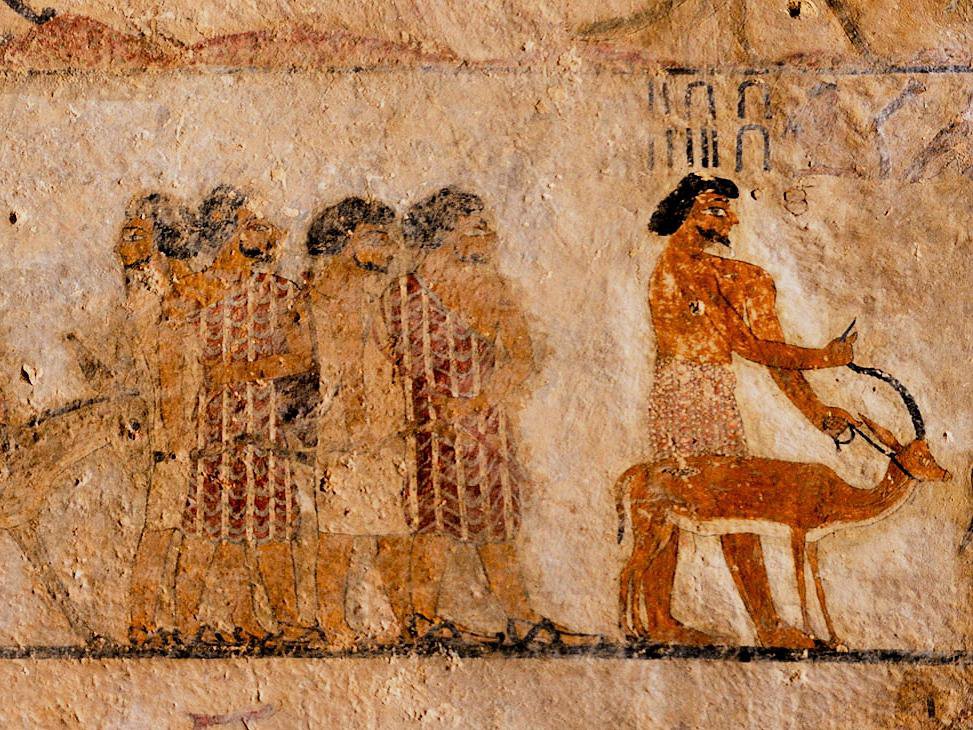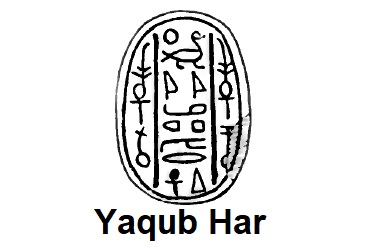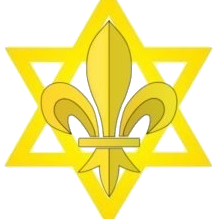Hyksos
היקסוס
Ordinal Gematria = 70
= gematria of “Sod” (“Secret”)
סוד
“Total number of Jacob’s household who came to Egypt: seventy.” (Genesis 46:27)

The Hyksos is the name given to a Semitic people who ruled Egypt between the 18th and 16th centuries BCE.
They were described as both shepherds and kings. The Egyptians, seeing them as invaders, were wary of their increasing numbers and prosperity. Eventually, they were expelled from Egypt.

Six leaders of the 15th Dynasty are called “Hyksos.” The one considered to be the first Hyksos pharaoh is named Salitis. “Is” is a masculine name suffix, and “Salit” is reminiscent of the biblical Joseph, who is described as “Shalit” (“Governor,” the only time this term is used in the Torah) of Egypt (Genesis 42:6). Manetho, in his History of Egyptas recorded by Flavius Josephus, describes Salitis as amassing grain, much like Joseph:
“And Joseph gathered a tremendous quantity of grain, like the sand of the sea, so much that they stopped measuring it because it was beyond measure.” (Genesis 41:49)
Salitis’s successor, Bnon, may be “Ben-Oni,” another name for Benjamin (Genesis 35:18), the only full brother of Joseph (both having Jacob and Rachel as parents).
The Pharaoh Yakub-Har shares the same name as Jacob/Yaakov. Sakir-Har might correspond to Issachar, and so on. However, this period is distant, and these similarities between biblical names and Hyksos rulers remain speculative, though they offer intriguing possibilities.

There is no evidence of the millions of Hebrews who supposedly left Egypt and wandered for 40 years in the desert. The Hyksos, on the other hand, truly existed. They settled in Egypt, ruled over it, and were later expelled. Many Hyksos scarab-shaped amulets, like those of Yakub-Har, have been found in Canaan, indicating their popularity there. It is likely that some Hyksos became integrated with what might be called the proto-Israelites. Thus, some stories in the Bible could stem from the collective memory of Hyksos descendants, as well as from other groups known as the Shasu and Hapiru, who later settled in Canaan.
The origin of monotheism is obscure. It is up to us to shed light on it, to refine the great monotheistic religions, which for too long have brought division, war, slavery, obscurantism, and so forth. Much of the world’s troubles stem from a handful of people who fail to grasp that the stories of the Torah, New Testament, and Quran are mere fables, adaptations of older myths. These major monotheistic religions, as we know them, must fade away. We must transcend them. This may seem “heretical,” “mad,” or even “satanic”… but this is the Truth of the Living God. The Truth is infinitely more beautiful than fiction. Yet to uncover this Truth, we need the Logos (closely tied to number theory), pure and illuminating logic, which is the very opposite of myth and illusion. Leave Egypt!
